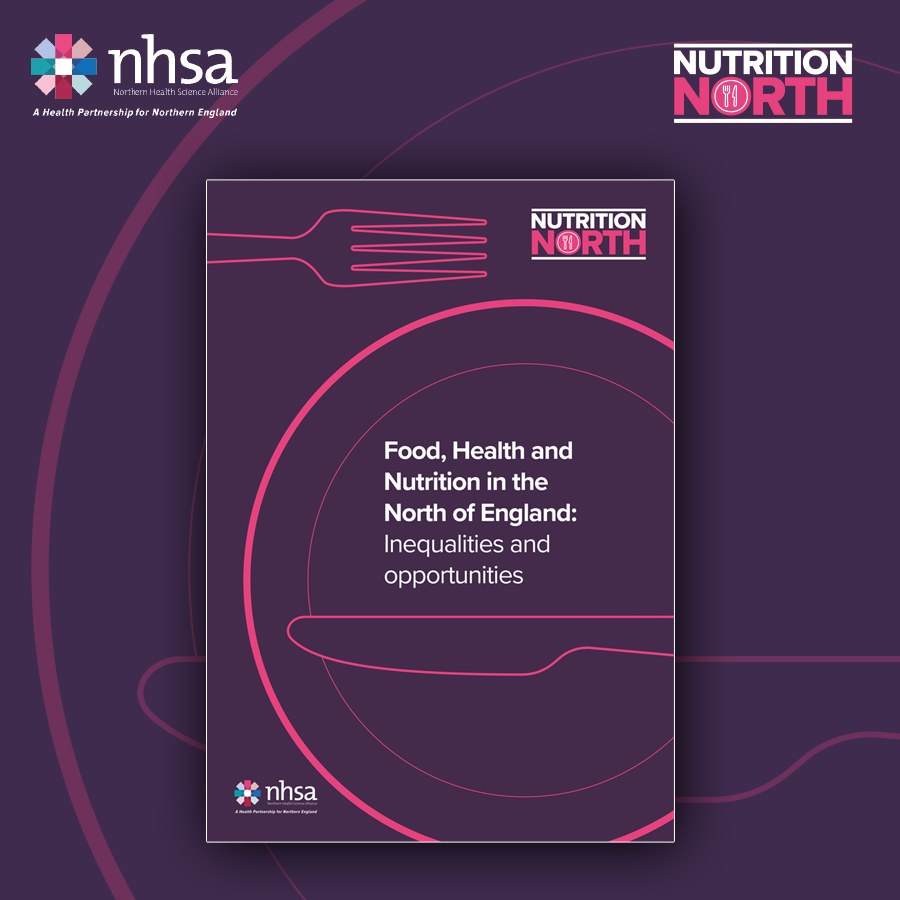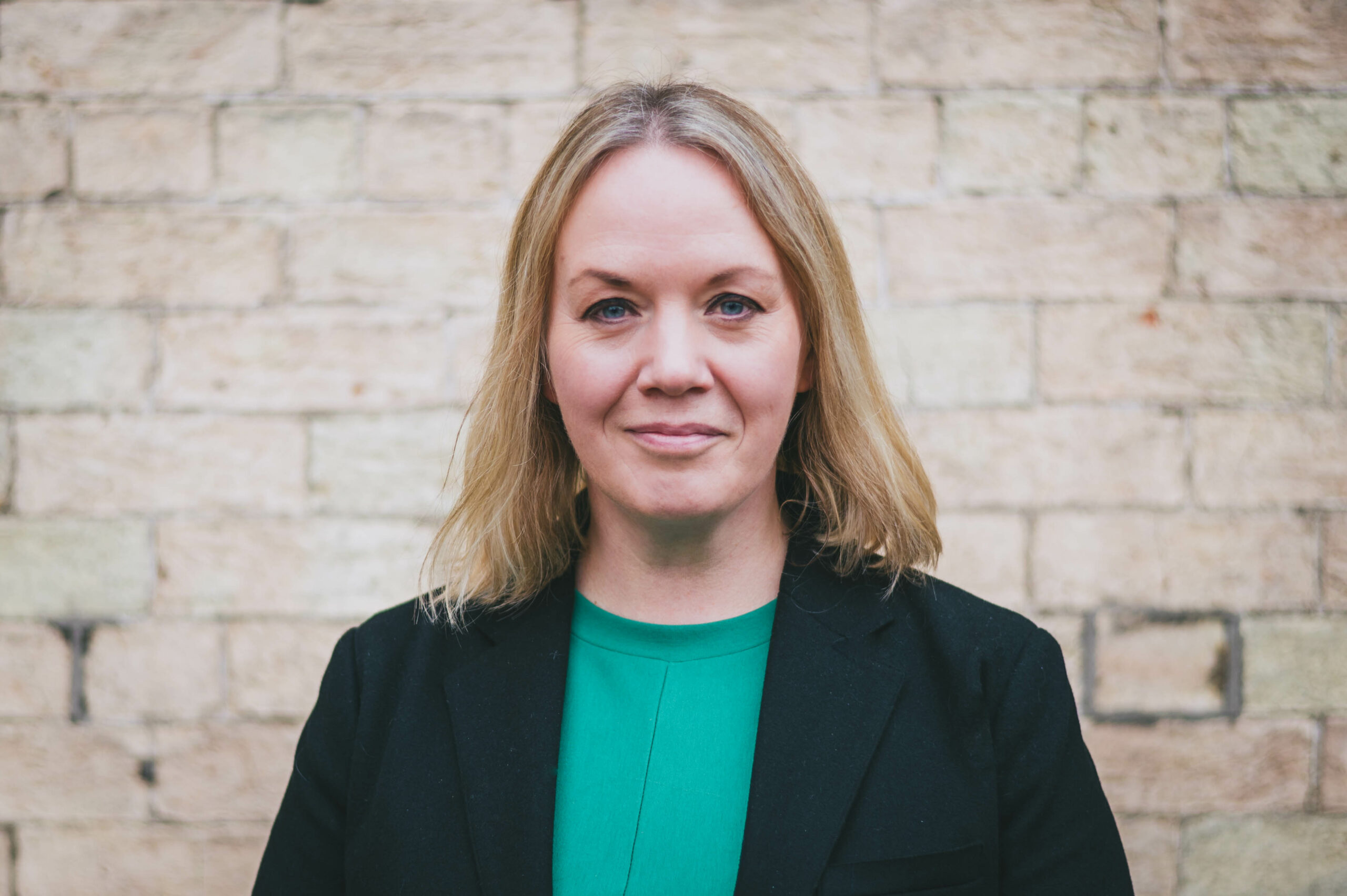Health and work inequalities worsening for women in the North of England

Women in the North of England can expect to live fewer years in good health, are more likely to be unable to work due to long-term sickness and disability and are losing out on £158million worth of wages a week compared to other areas of England, according to new analysis.
Health Equity North academics studied the latest available data to see whether there have been improvements in the vast inequalities faced by northern women since the publication of last year’s damning Woman of the North report.
Researchers looked at life expectancy, healthy life expectancy, economic inactivity due to long-term sickness and disability, and average weekly wages. The findings confirm that the outlook remains bleak for women in northern regions and has worsened in some areas.
The new figures come as policy, health, academic, and third sector leaders attend Health Equity North’s Woman of the North Summit, held in partnership with the Northern Health Science Alliance and Leigh Day Solicitors, at Durham University today (Wed 7 May 2025).
The Summit will see the launch of the ‘Woman of the North Charter’ which has been backed by northern Mayors Kim McGuinness and Tracy Brabin, who are both speaking at the event. The Charter calls on Mayors to use their powers to create fairer opportunities across education, work, welfare and health for women.
The Woman of the North report, published by Health Equity North in September 2024, exposed the growing regional inequalities and the impact this has on northern women’s quality of life, health, work, their families and communities.
The updated analysis found that while there have been small increases in life expectancy in the North, women are now spending more of those years in poor health, and that healthy life expectancy has reduced in some areas in just two years. Data also shows the number of women in the North that are unable to work due to long-term sickness or disability has sharply risen since 2020.
In addition, women in the North continue to be paid much less than the national average and significantly lower than their counterparts in London – meaning women living in the North are losing out on £158m every week, around £8.2bn a year compared to what they would earn if they were paid the national average.
By pledging their support to the Woman of the North Charter, the Mayors will commit to raising awareness and mobilising action for women throughout their work, whether it is policy action, public campaigns or developing new services.
Health Equity North’s new analysis puts into sharp focus the need for a wide range of evidence-informed policy solutions to improve the current situation for women’s health. The analysis found:
Life expectancy:
- Girls born in the North East, North West and Yorkshire and the Humber in 2021-2023 can expect to live for 81.4, 81.6 and 82.1 years, respectively. This is around two years below the national average (83.1 years) and up to three years fewer than girls born in London and the South East (both 84.1 years)[1].
Healthy life expectancy:
- Girls born in the North East, North West and Yorkshire and the Humber in 2021-2023 can only expect to live in good health to 57.5, 59.9 and 62.0 years, respectively. This is up to six years below the national average (63.7 years) and up to nine years fewer than girls born in the South East (66.3 years)[2].
- This has worsened compared to previous figures from 2018-2020, with girls born in the North East seeing a drop of almost two years (from 59.7), 2.5 years in the North West (from 62.4) and 0.1 years in Yorkshire and the Humber (from 62.1).
Economic inactivity due to long-term sickness or disability:
- 7% of women in the North East are economically inactive due to long-term sickness or disability, 8.0% of women in the North West, and 7.3% of women in Yorkshire and the Humber. These are higher than the national average (6.2%) and considerably higher than the South East (4.3%)[3].
- This has worsened significantly compared to previous figures from 2021, with long-term sickness and disability in women rising by 3.9 percentage points in the North East, 2.6 percentage points in the North West, and 2.5 percentage points of women in Yorkshire and the Humber.
Weekly wages:
- Median weekly wages for women in the North are below the national average for those in both full-time and part-time employment. The average weekly wage for a full-time working woman in the North East is £601, in the North West is £641, and is £615 in Yorkshire and the Humber. These are all much lower than the national average (£672) and considerably lower than for women in London (£805)[4]. The gap in pay between the North and London has grown over time.
- Because of these gaps, women living in the North lose out on £158m every week, around £8.2bn a year compared to what they’d get if they were paid the national average.
Hannah Davies, Executive Director at Health Equity North, said: “Our new analysis shows that the situation for women in the North of England is worse than we originally thought.
“When we published the Woman of the North report we knew the road to change would be a long one and shifting the dial on inequalities of this scale would not happen overnight. To push for the change that is so desperately needed we need to keep momentum, and we need to work together to ensure the voice of the North is heard by those with the power to change things. That’s why we brought together influential northern leaders with representatives from across the women’s health field at the Woman of the North Summit.
“Our two female Mayors have been instrumental in elevating our report recommendations and rallying support to ensure that the women of the North don’t fall further behind. And by pledging their support to our Woman of the North Charter they have further committed to do what they can to make a real difference to lives of women across our regions.”
Dr Luke Munford, Health Equity North Academic Co-Director and Senior Lecturer in Health Economics at The University of Manchester, said: “Women continue to be impacted by regional inequalities, and our latest research shows that there is no indication of these inequalities narrowing; in fact, we’re seeing the opposite – the inequalities are getting bigger. Rising long-term illness and disability, coupled with lower wages and other detrimental factors, have seen women trapped in a cycle that can only be broken by implementing ambitious and long-term targeted policies and support.
“It is clear that urgent action is required to address the worrying economic outcomes for northern women, which can not only impact their quality of life and health outcomes but also those of their children. These factors will continue to grow and exacerbate regional inequalities if they’re not tackled as a priority. We will continue to push our report recommendations and call on leaders take the opportunity to implement these so we can collectively work towards a fairer future for women and girls.”
Kim McGuinness, Mayor of the North East, said: “The reality laid bare in this new analysis is unacceptable. It’s a damning reminder of the deep inequalities women in the North continue to face in health, in work, and in opportunity.
“It’s why I’m backing the Woman of the North Charter and committing to action that creates opportunities and delivers real change.
“We’re investing in affordable childcare so women can access training and get back into work, introducing travel passes to help jobseekers reach interviews, and bringing buses back under public control to connect communities.
“These aren’t just policies, they’re lifelines for women who’ve been held back for too long.
“I’m determined that the next generation of girls growing up in the North will have the same chances, the same health, and the same futures as anyone else in the country.”
Tracy Brabin, Mayor of West Yorkshire, said: “It’s a damning indictment of modern Britain that girls born in the North of England can expect to live shorter lives than those born elsewhere. But where successive governments have failed to fix these inequalities, devolution is turning the tide.
“Here in West Yorkshire, we’ve set up the country’s first ever Women’s Safety Unit to put abusers behind bars; we’re flexing our Adult Skills Fund to support women with caring responsibilities into training; and we’re delivering more and cheaper bus journeys which women disproportionately rely on.
“Through strong female representation at the regional level, devolution is empowering us to improve the lives of women and girls and create a brighter region that works for all.”
Leigh Day partner, head of medical negligence, Suzanne White said: “As a human rights law firm whose passion is to restore justice, Leigh Day is absolutely delighted to add its voice to the Woman of the North Summit.
“We are very happy that our lawyers with relevant expertise and experience are able to join in the discussions about the Woman of the North report and to suggest vital pathways to effect positive change in women’s lives.
“Thanks to Health Equity North, this Summit gives Leigh Day a unique opportunity to speak with legal authority on ways forward in women’s health, equal pay and safety and we are extremely glad to be able to take part and give the support that helped to make it possible.”
Health Equity North is a virtual institute focused on place-based solutions to public health problems and health inequalities across the North of England. It brings together world-leading academic expertise from the Northern Health Science Alliance’s members of leading universities and hospitals.
The Woman of the North Summit will also feature presentations and workshops led by policymakers and women’s health experts including: Professor Clare Bambra (Academic Co-director of Health Equity North and Professor of Public Health at Newcastle University), Eve Holt (Head of Policy & Implementation at Greater Manchester Combined Authority), Dr Anna Barker (Associate Professor in Criminal Justice & Criminology, Leeds University), Amanda Bailey (Director, North East Child Poverty Commission), Professor David Taylor-Robinson (Academic Co-Director of Health Equity North and Professor of Public Health and Policy at the University of Liverpool), Professor Charlotte Clarke (Executive Director of the Wolfson Research Institute for Health and Wellbeing, Durham University), Dr Nasima Akhter (Associate Professor of Public Health, Teesside University), Dr Oluwaseun Esan (NIHR Public Health Research Fellow, Liverpool University), Amy Van Zyl (Chief Executive Officer, Her Circle), Professor Nicole Westmarland (Director of the Durham Centre for Research into Violence and Abuse (CRiVA), Durham University), Dr Michelle Addison (Associate Professor of Sociology, Durham University), Dr Charlotte Richardson (Senior Lecturer in Pharmacy Practice, Newcastle University and NIHR Social Care Research Fellow), Dr Laura Lindsey (Senior Lecturer in Pharmacy and Population Health Sciences, Newcastle University) and Human Rights legal experts from Leigh Day Leanne Devine, Lauren Lougheed and Linda Wong and Suzanne White.





